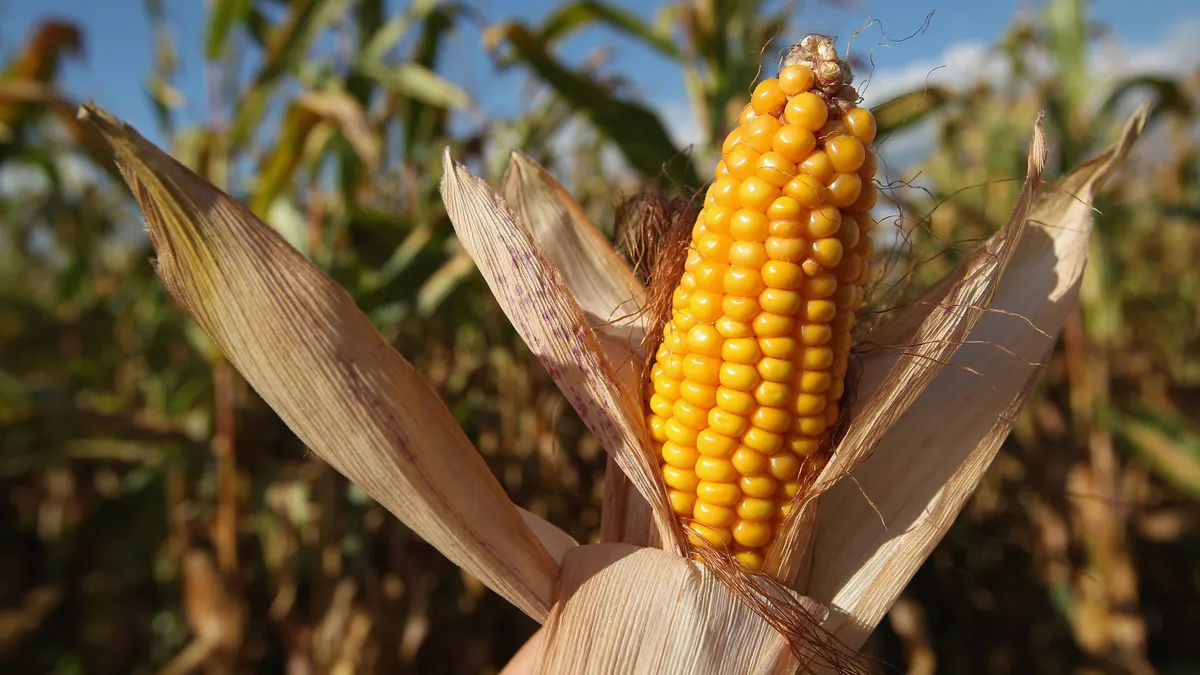Dive Brief:
-
Corn growers and other agricultural groups are teaming up with the oil industry to try and block a rule from the U.S. Environmental Protection Agency limiting truck emissions.
-
The National Corn Growers Association and American Farm Bureau Federation filed a lawsuit with oil and trucking groups, arguing that EPA’s heavy-duty vehicle emissions standards for model years 2027 to 2032 would require a switch to technology that doesn’t yet exist or reliably work at scale.
-
Agriculture groups are also fighting against the EPA's emissions rules aimed at passenger vehicles, with the Renewable Fuels Association and National Farmers Union arguing in a separate lawsuit that the EPA favored battery-powered vehicles over alternative fuels.
Dive Insight:
The legal challenges come months after the EPA released its final emissions standards designed to reduce greenhouse gas impacts by phasing out traditional transportation fleets and encouraging the growth of battery-powered vehicles.
The agency’s final rules, which became effective last week, laid out potential pathways for the adoption of heavy-duty vehicles to meet the Biden administration’s climate targets, including a transition of more than 40% of trucks to battery-powered vehicles by 2032.
However, little was mentioned about corn-based ethanol or other alternative fuels and their role in reducing emissions, ruffling the feathers of corn growers and biofuels advocates who claim the exclusion of renewable diesel ultimately harms farm revenue.
“EPA has tried to impose a one-size-fits-all approach to addressing climate change by prioritizing electric vehicles over other climate remedies like corn ethanol,” Harold Wolle, a Minnesota farmer and president of the National Corn Growers Association, said in a statement.
The rules also raise logistics concerns for the agricultural industry, which relies on the trucking industry to transport livestock and perishables throughout the country.
“Unfortunately, heavy-duty vehicles that are powered by batteries have short ranges and require hours to charge,” American Farm Bureau Federation President Zippy Duvall said in a statement. “Impractical regulations will extend the amount of time on the road, putting the health and safety of drivers and livestock at risk if they need to stop for long periods of time to charge.”
Adoptions of battery-powered trucks are growing in the U.S., but slowly. According to a report from the International Council on Clean Transportation, registrations of zero-emission, heavy-duty vehicles rose from 200 in 2021 to 1,600 in 2023. Meanwhile, during the same period, registrations grew from 490,000 to 520,000 at a global scale.















